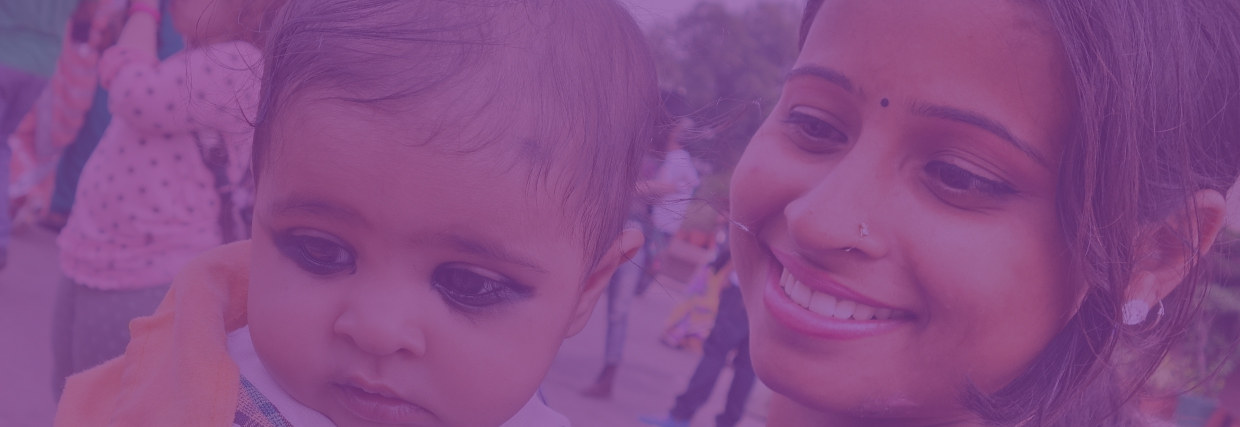About Indian Institute of Public Health Hyderabad
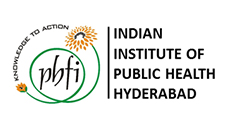
The Public Health Foundation of India is little more than a decade old now. In 2006, a unique, public private initiative was launched in India to focus on sustained and holistic strengthening of the broad dimensions of Public Health from a systemic level; making preventive, promotive, and therapeutic health work for the public at large. The Public Health Foundation of India (PHFI) is an initiative to redress the limited institutional capacity in India for rigorous training, research and policy development in the area of public health.
 Structured as an independent foundation, PHFI adopts a broad, integrative approach to public health, tailoring its endeavours to Indian conditions and bearing relevance to countries facing similar challenges and concerns. The organisation has evolved collaboratively, through consultation and direction, from a coming together of Indian and international academia, state and central governments, multi- & bi-lateral agencies and civil society groups.
Structured as an independent foundation, PHFI adopts a broad, integrative approach to public health, tailoring its endeavours to Indian conditions and bearing relevance to countries facing similar challenges and concerns. The organisation has evolved collaboratively, through consultation and direction, from a coming together of Indian and international academia, state and central governments, multi- & bi-lateral agencies and civil society groups.
Under the aegis of the Public Health Foundation of India, four Indian Institutes of Public Health (IIPH) have been set up at Delhi, Gandhinagar, Hyderabad, Bhubaneswar and Shillong. In addition a satellite campus has been functioning at Bengaluru with active participation of the Government of Karnataka. Centres of excellence have been set up for chronic diseases (SANCD), Disability (SACDIR), Cardio metabolic risk factors (CARRS), mental health and social determinants.
Twelve years ago, on April 7, 2007, (World Health Day), the Public Health Foundation of India laid the foundation stone for its first institute in Hyderabad, in partnership with the Government of Andhra Pradesh. The Indian Institute of Public Health-Hyderabad (IIPH-H) commenced its activities on July 1, 2008, with a mission to deliver public health education and training, pursue research and advocacy and support policy development, as aligned to the public health priorities of the state and the nation.
The aim of these institutes is to build a competent and skilled public health workforce through teaching, research, and sharing of knowledge and experiences in public health. The institutes aim to develop and deliver public health education and research activities relevant to India in content and context, while attaining international standards. They strive to make public health education multi-disciplinary, drawing upon subjects like epidemiology, biostatistics, life sciences, demography, health economics, social and behavioural sciences, environmental health and management. Our academic and training capacity building programmes attract a diverse student body from varied backgrounds including medicine, dentistry, nursing, biological sciences, nutrition, biotechnology, social sciences, economics and management to take India’s health story to the next level.
This initiative is a response to the needs of India’s changing public health scenario, and the aspirations of individuals who work at different levels of the system in order to improve the health of the country’s population. The unmet need for greater public health expertise – both in numbers and in skill – to run the health system and services of the country; and for improved public health research, policy and practice has been repeatedly voiced as a serious gap that has resulted in significant public health challenges. As a response to these felt needs of the health system in India, PHFI and the IIPHs strive to augment the health system and spark efforts that can eventually lead the country’s people towards better and healthier lives, and result in better health outcomes.
About the London School of Hygiene and Tropical Medicine
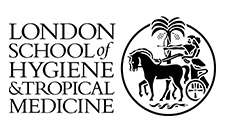
The London School of Hygiene & Tropical Medicine (LSHTM) is renowned for its research, postgraduate studies and continuing education in public and global health.
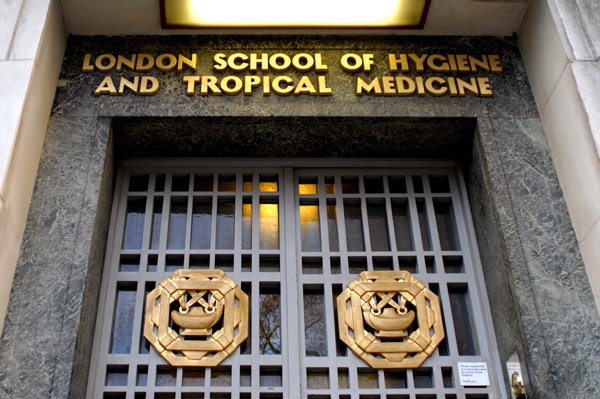
About The Queen Elizabeth Diamond Jubilee Trust

The Queen Elizabeth Diamond Jubilee Trust is a charitable foundation set up in 2012 to celebrate The Queen’s 60-year contribution to the Commonwealth. Working through grants, advocacy and convening with partners, the Trust aims to create sustainable improvements to the lives of Commonwealth citizens to leave a lasting legacy which will be owned by the whole commonwealth. In its first year, the Trust formally launched two programmes: the elimination of avoidable blindness and the empowerment of a new generation of young leaders.
The Trust is working to combat three major avoidable causes of blindness – namely DR, Retinopathy of Prematurity (ROP) and Trachoma. The DR Initiative of the Trust is supporting programmes in 13 countries across the Commonwealth, including India. ROP initiatives are being supported only in India. The Trust’s Trachoma initiative does not support work in India, but does so in 11 countries of the Commonwealth.
In India, the Trust chose to engage with two of the most relevant institutions in its work. Public Health Foundation of India (PHFI) is an autonomous institution set up as a public/private initiative of the Government of India. It was set up with the aim of filling the deficit of public health professionals and building institutional capacity for training, research and policy development in the area of public health. The London School of Hygiene and Tropical Medicine (LSHTM) is a renowned centre for research and postgraduate education in public and global health. One of the world’s leading public health institutes, it makes significant contributions to public and global health research, education and translation of knowledge into policy and practice.
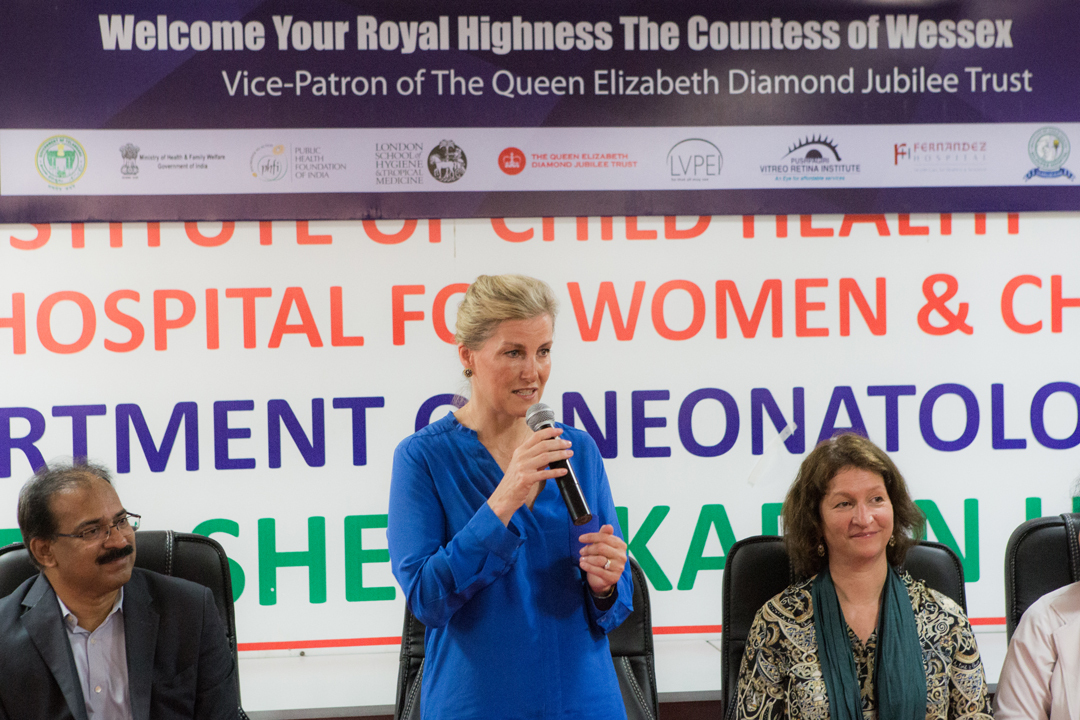
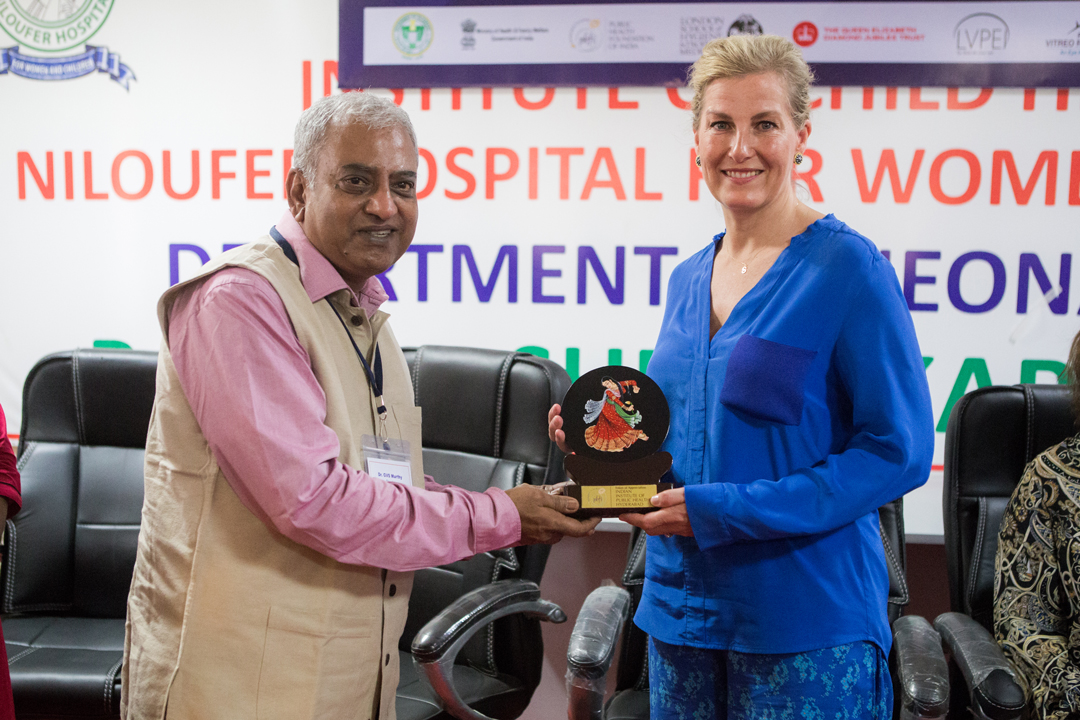
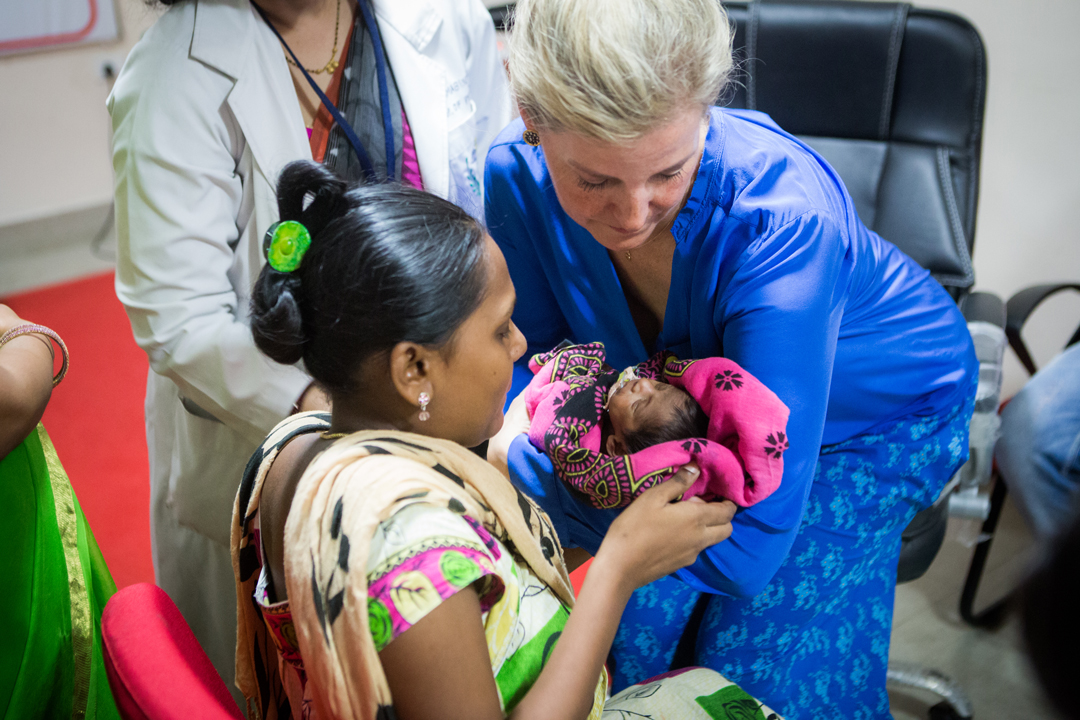
The Countess of Wessex, Vice-Patron of the QEDJT, visits ROP patients in the Niloufer Hospital, Hyderabad, April 2019





